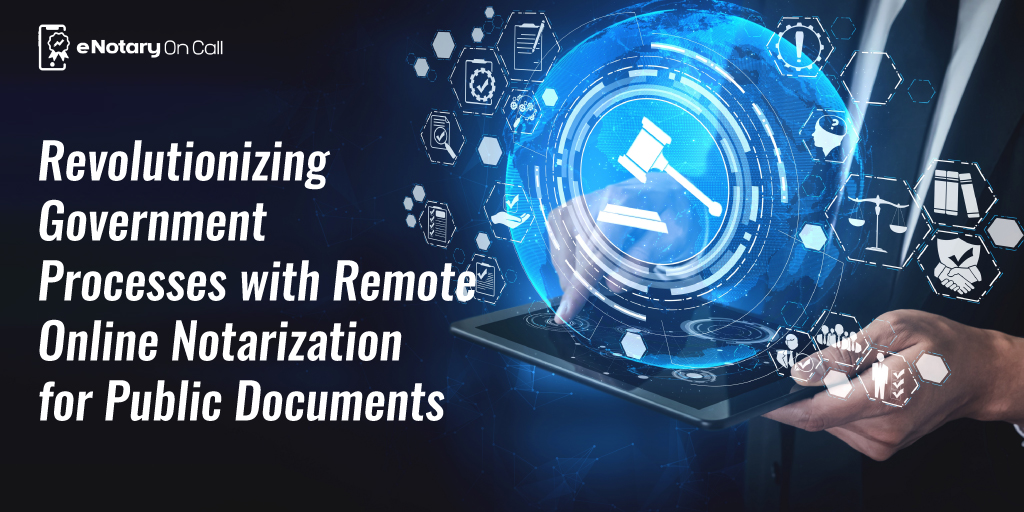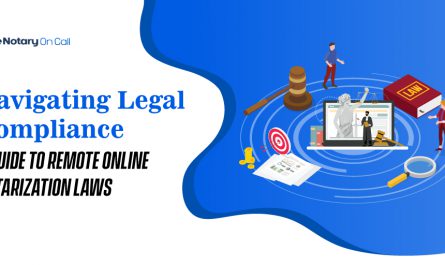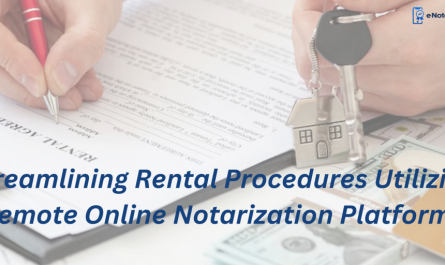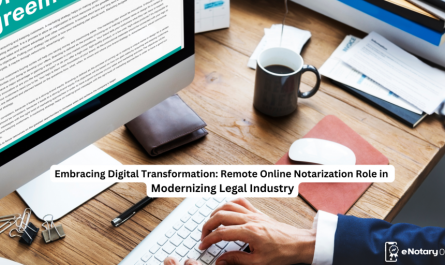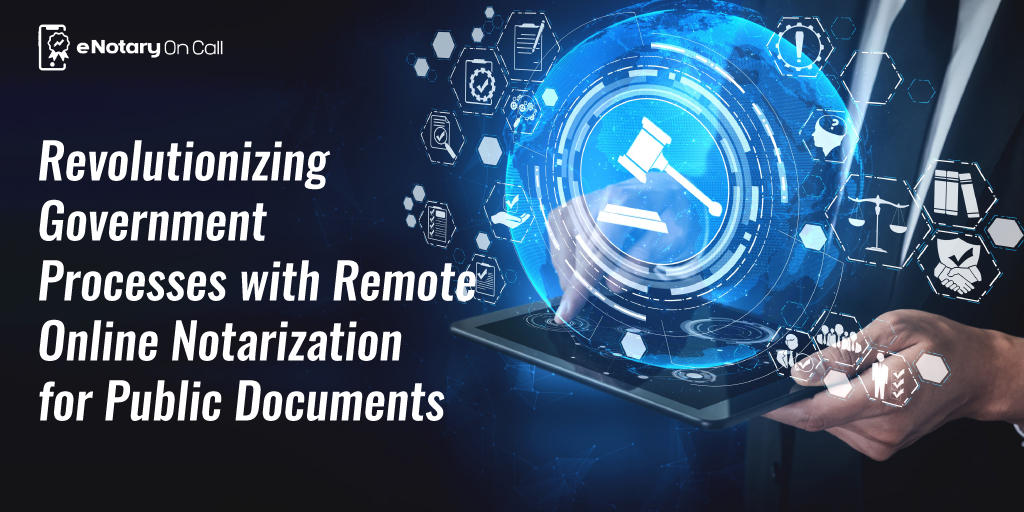
Government-related documents are pivotal in shaping policies, ensuring transparency, and maintaining legal frameworks within a society. These documents, ranging from legislation and regulatory guidelines to official reports, are crucial for effective governance. However, their importance is accompanied by a web of complexities, including intricate legal language, nuanced policy details, and the need for meticulous accuracy. Navigating these complexities is essential to uphold the integrity of governmental processes and facilitate informed decision-making for for both officials and the public.
Notarization of government-related documents adds an extra layer of authentication, confirming their legitimacy and preventing fraud. This crucial step ensures that the information contained in these documents is accurate and legally binding, instilling trust in official processes and transactions both officials and the public.
Ways of Document Notarization
In Person Notarization
The traditional approach involves a certified notary public verifying identities & overseeing document signings.
Remote Online Notarization
Alternatively, Remote Online Notarization (RON) allows individuals to undergo the notarization process virtually. It lets signers leverage secure digital platforms for identity verification and document authentication.
Undoubtedly both approaches are beneficial. However, the choice of methods depends on the signers. As the common goal behind the above-mentioned way is to enhance the credibility and legal standing of government-related documents.
Convenient Method of Document Notarization
Undoubtedly, anyone would choose the method that offers flexibility, comfort and ease. Thus, the virtual way of notarization becomes the first choice for many. Thus, embracing technological advancements, electronic notarization has emerged as a convenient method for government-related documents. This digital approach streamlines the process, offering efficiency and accessibility while maintaining the requisite legal standards for authentication and verification.
Remote Online Notarization Platforms
There are multiple platforms now in the market revolutionizing notary services by enabling virtual notarization. They facilitate secure, real-time interactions between individuals and notaries, ensuring the legality of documents. Furthermore, by utilizing robust encryption and identity verification measures, RON platforms enhance accessibility, reduce logistical barriers, and maintain the integrity of notarization in an increasingly digitized world.
This transformative approach to notary services optimizes efficiency, providing a seamless and reliable means to perform virtual notary functions for various government-related documents.
Reasons to Choose the Platform
Legal Compliance:
- The platform ensures the online notarization complies with local and national regulations. Additionally, confirm that the process adheres to specific laws governing virtual notarization in your jurisdiction.
Security Measures:
- Platforms prioritize robust security features, including encryption, secure document storage, and multi-factor authentication. Furthermore, protects sensitive information during the notarization process.
User-Friendly Interface:
- With intuitive and user-friendly interfaces, a streamlined and easy-to-navigate system enhances the user experience for both the notary and the individuals seeking notarization services.
Identity Verification Protocols:
- It employs advanced methods to authenticate the identity of signers, such as biometric verification or knowledge-based authentication.
Document Management Capabilities:
- Consider document management inclusive of secure storage, easy retrieval, and management options for notarized documents. This ensures a seamless process for both parties involved.
These factors effectively allow the notarization of the documents while using a robust platform aligning all legal requirements, security standards, and operational preferences.
In conclusion, Remote Online Notarization is a transformative solution for notarizing government documents, offering enhanced accessibility, efficiency, and legal compliance. With secure identity verification and user-friendly interfaces, these platforms streamline the notarization process. Remote access empowers individuals and organizations, contributing to a more efficient and accessible framework for authenticating critical government-related documents. As technology shapes administrative processes, online notarization becomes a pivotal tool in modernizing and optimizing the authentication of crucial governmental paperwork.
